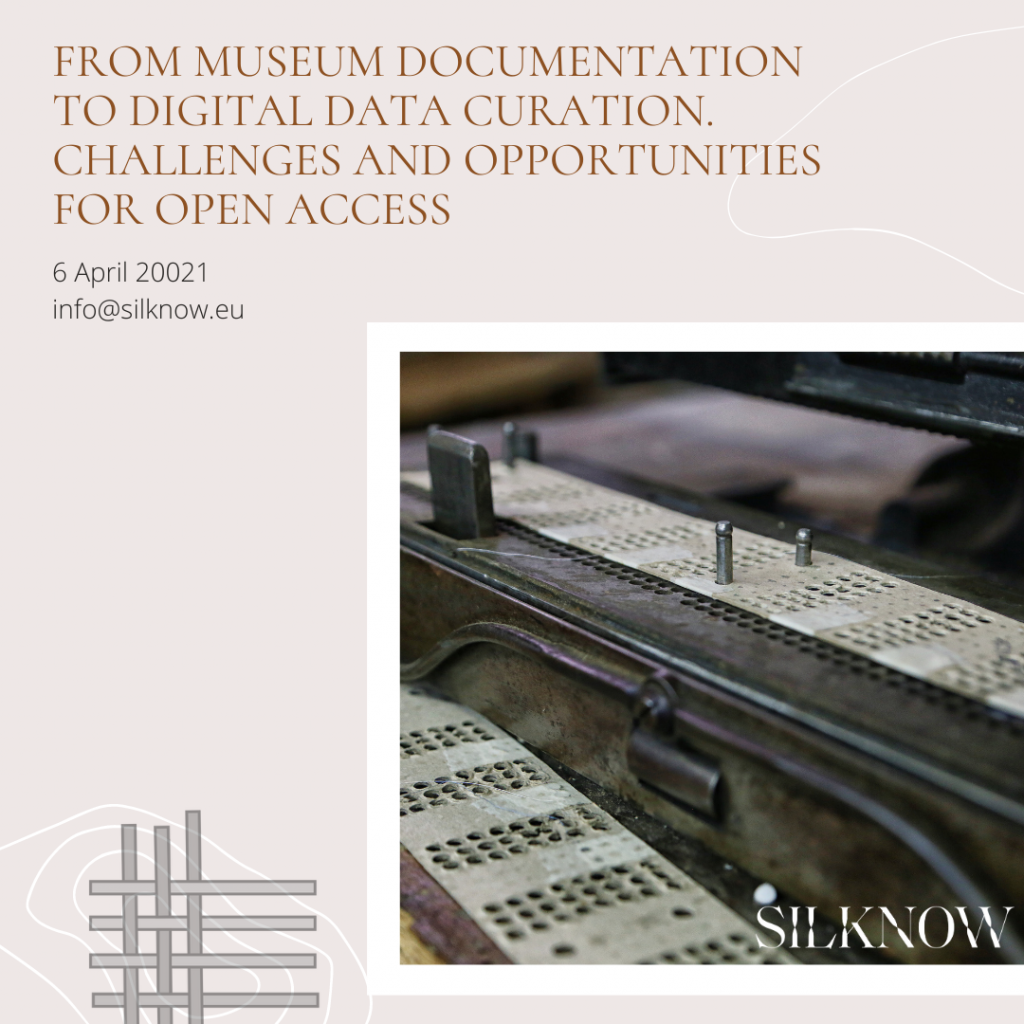
Cultural heritage organizations produce a vast quantity of heterogeneous datasets which are often held inside their walls and are not open to the public. Even when they are, sometimes they are not easily accessible, for technological and organizational reasons. This has led to the loss of information essential both for the general audience and researchers. The problem gets worse when dealing with textile collections that require a high specialization to document and conserve them.
SILKNOW aimed to provide answers for some of these challenges, thanks to digital tools and approaches, combined with scholarly expertise (from silk specialists, art historians and historians, textile engineers…). One of its goals was to provide methods and best practices for heritage institutions that want to take their textile collections into the information and knowledge society. It pays particular attention to institutions that lack the technical resources and staff to venture into ICT and research.
Three workshops were held where the ultimate goal is to develop together a document of good practices in textile conservation.
The first workshop was held on 15th February 2021. It was attended by 13 professionals specialized in textile collections, some of them coming from 8 Spanish museums, such as:
- Museo Lázaro Galdiano, Madrid
- Museu de la Seda de Moncada
- Museo Nacional de Artes Decorativas, Madrid
- Museu del Disseny, Barcelona
- Centro de Documentación y Museo Textil, Terrassa
- L’Etno, Valencia
- Patrimonio Nacional
- Conselleria d’Educació, Cultura i Esport (regional government, Valencia)
The second workshop was held on 25th February and was carried out in Italian. It gathered representatives from 9 small museums, all of them belonging to Catholic dioceses:
- Museo Diocesano di Caltanissetta
- Museo Diocesano di Cuneo
- Museo Diocesano di Monreale
- Museo Arcidiocesano “G.Boccanera” di Camerino
- Museo Diocesano di Genova
- Museo Basilica San Sebastiano
- Museo Diocesano di Massa Carrara – Pontremoli
- Museo Diocesano di Padova
- Museo Diocesano di Reggio Calabria
The third workshop was held on the 6th April, and gathered participants from Europe, America and Asia. The 15 attendees included representatives from 9 museums and one EU-funded research project, plus 2 independent scholars, including:
- Museo Textil de Oaxaca, Mexico
- Philadelphia Museum of Art, United States
- Haus der Seidenkultur, Germany
- The Metropolitan Museum of Art, United States
- Klosterkammer Hannover, Germany
- Olympic Foundation for Culture and Heritage, Switzerland
- Fachhochschule Potsdam, Institute for Urban Futures, Germany
- State Silk Museum, Georgia
- Centre for Textile Research, University of Copenhagen, Denmark
- Mingei research project
- Museu Nacional do Traje, Portugal
- Luba Nurse, independent scholar
- Luisina Silva, independent scholar